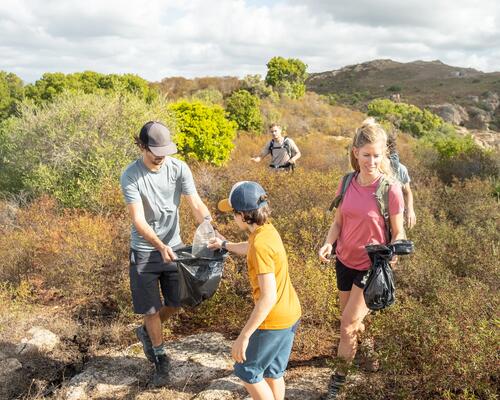Surfing in the eye of the storm
There are few sports that bring humans as close to nature as surfing. Forever keeping an eye on the state of the oceans and the quality of the waves, surfers have been watching the global changes from beaches the world over. And the news is not good. Four years ago, a Stanford University researcher had already noticed that 18% of California's most popular surf spots may be swallowed up by the sea over the next the 60 years.
In 2018, another reported, published in the National Geographic, predicted that the iconic beaches along the west coast of the US (Venice, Newport, Santa Monica) could be reduced by one to two thirds of their size over the same period. But climate change doesn't just nibble away at the beaches: marine currents and wind affected by changing temperatures, coastal erosion, and ever-increasing natural disasters all combine to disturb the pattern of wave generation, sometimes creating big waves, other times much weaker waves.
Closer to home, the Aquitaine coastline has also suffered the impacts of erosion and the beaches have receded dozens of metres over the last few decade. In Lacanau, the surf schools - whose number has grown by a factor of 9 from 1995 to 2016 - have come together to brainstorm new methods of investing in the beaches in a more environmentally responsible way. In Tahiti, which is due to host the surf events of the 2024 Olympics, the Teahupoo community is also taking action; they have set up an association to sound the alarm about the effects that the gargantuan installations are predicted to have on the coastline and its waves. More than ever before, surfers can now act as observers of climate change: Surftech professionals have created the 'SmartFin', a fin that surfers can attach to their boards to collect data that is then used for scientific research on coastal ecosystems.






